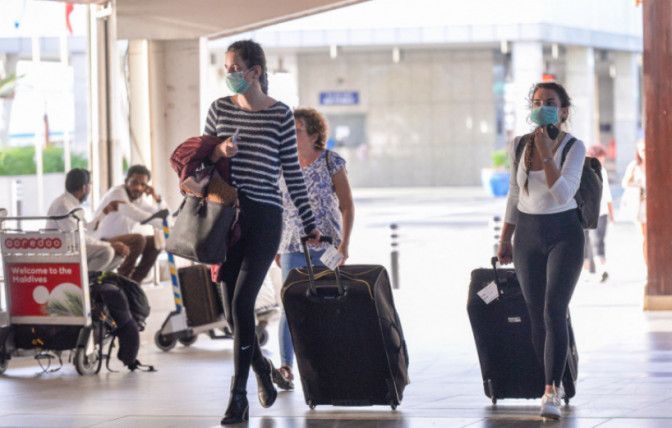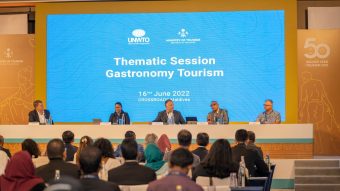
Increase in GST will Result in Less Tourist Arrivals, MATATO
The Maldives Association of Travel Agents and Tour Operators (MATATO) has engaged with international and domestic stakeholders, including the Maldivian government, the International Monetary Fund (IMF), tourism associations and other relevant institutions, regarding the impact of the proposed tax increases and other proposed measures by the government to address the national deficit.
“MATATO calls on the Government to take into consideration the impact of tax increases and lackluster government austerity measures upon the most productive sector of the Maldivian economy accounting for 74% of the gross national income, and especially the disproportional impact on Small and Medium Enterprises (SMEs)”, the association stated in a PR issued on Thursday.
Last week MATATO consulted several tourism associations, including the Maldives Association of Tourism Industry (MATI), the National Boating Association of Maldives (NBAM) and the National Hotel and Guesthouse Association of Maldives (NHGAM). According to MATATO, these associations expressed similar concerns, including that the timing for a proposed increase to the domestic and tourism goods and services taxes (GST and TGST) was ill conceived and potentially debilitating for many of their members.
MATATO and MATI also met with the IMF team that is visiting to engage with the Government on tax policies. Their proposed agenda included discussions on the Green Tax and possible alternatives such as some types of carbon-based taxation, changes to tourism land rents and airport charges, as well as taxes on fuel, vessels (air and sea), and bottled water. The MATATO team attending the meeting argued that the IMF experts and government advisers appear to be ill-informed on the realities of commerce in the Maldives, especially within the Tourism sector and regarding their contractual obligations with foreign tour operators.
The team further expressed their dismay that the IMF team chose to meet with the stakeholders of the Maldivian economy only after they had published their findings and presenting the report to the government, and MATATO also expressed concern that many other major stakeholders, including industry associations were not part of the consultation process.
A survey conducted by MATATO indicates that the proposed tax increase could lead to a drop of tourist arrivals by almost 10% in 2023 if the government proceeds with it, with the costs largely born by the Maldivian owned SME stakeholders in the tourism industry.
Moreover, the association stated that foreign stakeholders, including hotel operators, hotel chains, and major investors, have raised concerns that the proposed tax increases would yield Maldives as one of the highest taxing countries in comparison to Maldives biggest competitors, and highlighted that the buying power of budget and mid-range properties will be severely diminished as a result. SMEs in the Maldives, including guesthouses and service providers are expected to suffer as a result.
MATATO also highlighted the negative impact that the Maldives and especially its tourism industry has faced due to changes in the global economic climate, and added that increases in prices resulting from increased taxes will negatively impact demand even further.
Instead of taxing the tourism sector, MATATO calls on the government to increase partnership efforts with the industry to increase arrivals, the duration of tourist stays, and margins on rates.
The association noted that Ministry of Finance has yet to share details of any austerity measures planned to meet the challenge of a strained budget, and reiterated that this is an opportunity for the government to restructure its spending to be less wasteful, especially when concerning subsidies, public sector investment projects (PSIP), competitive bidding on infrastructure projects, recurrent expenditure on political appointees, expenses of State Owned Enterprises (SOEs) and other expenses.
Featured Image: Visit Maldives





